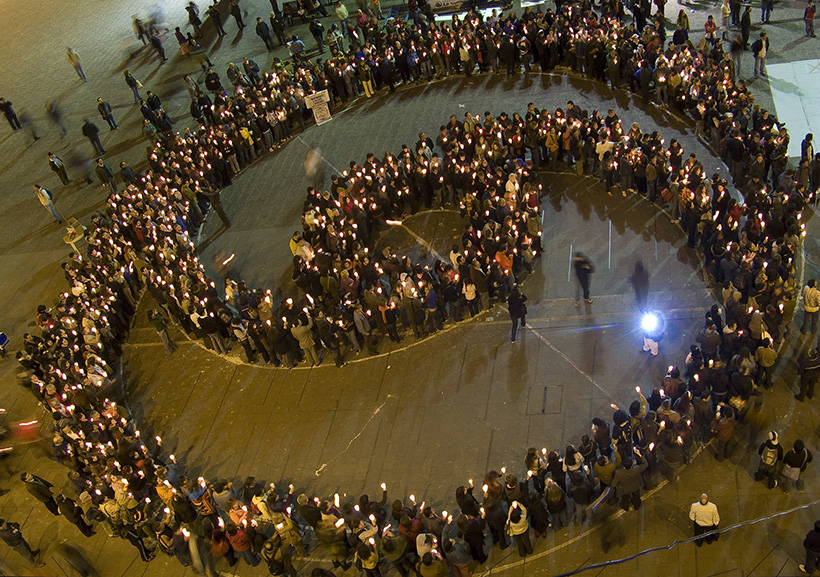For your information, we transcribe here the humanist proposal in its entirety:
Whereas,
- A nation is defined by the mutual recognition established by people who identify themselves with similar values and who aspire to a common future – and this does not necessarily have to do with race or ethnicity, or with language, or with History understood as a long process that begins in a mythical past;
- This mutual recognition between people can lead to the formation of national or plurinational States, as well as the existence of nations spread over several States, without this implying the loss of the individual’s sense of belonging to their community or preventing the possibility of convergence in diversity;
- States do not have the potentiality to constitute, by themselves, nations and can, therefore, be transformed throughout history, since they are, for all intents and purposes, changeable social and political constructions, as models of governance of peoples ;
- National minorities have, in any case, the right to have their cultural specificity recognized, as well as the right to self-determination, within the framework of a democratic federative organization and respect for human rights.
And recognizing that,
- Peaceful conflict resolution requires each party to put itself in the other’s shoes, opening itself to a process of cooperative negotiation and reciprocal treatment;
- National interests must be reciprocally attended, as far as possible, but they do not justify everything, nor can they override the human being as a central value and concern;
- The freedom of choice of individuals and peoples only exists if it can be exercised without external pressure and interference, imposed in a violent way;
- Humanity’s progress is not made through the constitution of empires or supranational entities that alienate the power of the social base in favour of particular economic interests, but through the construction of a Universal Human Nation, diverse and inclusive, governed by freedom, equal rights and opportunities and non-violence;
We propose the following guide for peace, given the difficult situation currently experienced on Ukrainian territory, with a view to halting the unacceptable return to war on European soil, which has caused so much life and destruction in the recent past:
- Immediate ceasefire between the warring parties and opening of humanitarian corridors for assistance to civilian populations;
- Withdrawal of Russian troops from Ukrainian territory and creation of a multinational peacekeeping force, constituted under the aegis of the United Nations (UN), for the Dombass region;
- Temporary demilitarization of Dombass by the belligerent forces and the possibility of the return of refugee civilian populations;
- Organization of a fair and free referendum on the self-determination of Dombass territory, under UN supervision, with a commitment to the acceptance of the respective results by the interested parties;
- Organization of a fair and free referendum on the self-determination of the territory of Crimea, under UN supervision, with a commitment to the acceptance of the respective results by the interested parties;
- Adoption of a status of political-military neutrality by Ukraine and recognition of its sovereignty and territorial integrity, depending on the results of the aforementioned referendums, by Russia;
- Lifting of all economic sanctions between the parties and resumption of international political and economic cooperation.
- Conducting international talks on nuclear and conventional disarmament at regional and global levels.
___________________________________________________
Redação Portugal – News published by the Pressenza bureau in Portugal
This post is also available in: Spanish, French, Portuguese
